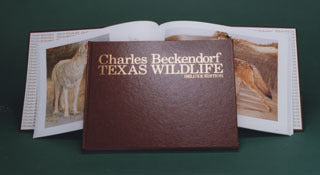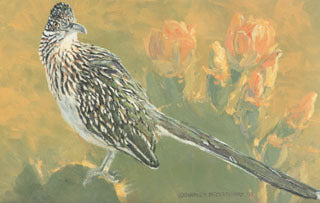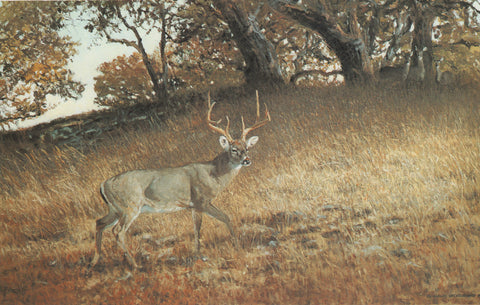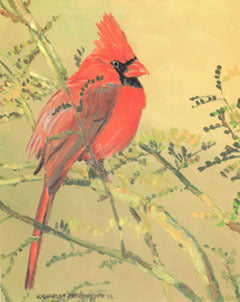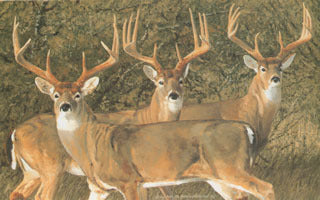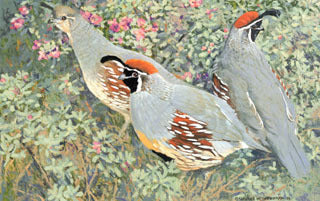
H-23 Gambel's Quail
Color Reproduction | By Charles Beckendorf
Additional Information
Although strong fliers, the Gambels quail flies reluctantly. Escape is usually made on foot to the nearest dense thicket, rocky creek or canyon. They feed and drink in early morning and late afternoon, and rest in heavy cover during the mid-day hours. A covey looking for food will post a sentinel, so they are almost impossible to approach unnoticed.
This image is from the Charles Beckendorf Texas Wildlife book. The original was an acrylic painting on canvas (1992) and the size of this print is approximately 14 X 11 inches. The total edition size of this print is 500.
This is a part of the Texas Wildlife Art Prints Collection.
Color Reproduction
Although strong fliers, the Gambels quail flies reluctantly. Escape is usually made on foot to the nearest dense thicket, rocky creek or canyon. They feed and drink in early morning and late afternoon, and rest in heavy cover during the mid-day hours. A covey looking for food will post a sentinel, so they are almost impossible to approach unnoticed.
This image is from the Charles Beckendorf Texas Wildlife book. The original was an acrylic painting on canvas (1992) and the size of this print is approximately 14 X 11 inches. The total edition size of this print is 500.
This is a part of the Texas Wildlife Art Prints Collection.
Beckendorf color reproductions are developed using four color process printing on fine white paper. This advanced technique utilizes separate color plates for each of the primary colors, plus black. High-resolution digital scans and special process inks are utilized to yield beautiful, accurate reproductions.
About the Artist - Charles Beckendorf
Charles grew up in Mathis, Texas, where he had the opportunity to spend hours on large ranches. Generous land owners gave him permission to wander freely over their ranches and he observed creatures in their natural surroundings. He developed a lifelong love of nature, whether it be in the tiniest of flowers or the largest of animals. It was at this time that he became a true naturalist.
We Also Recommend
REVIEWS

